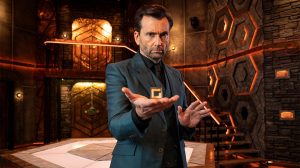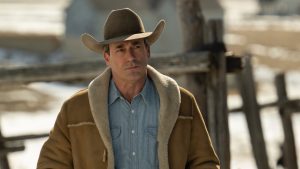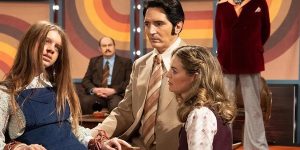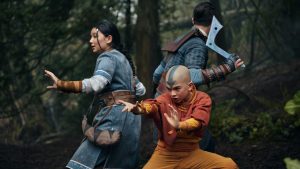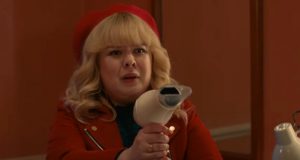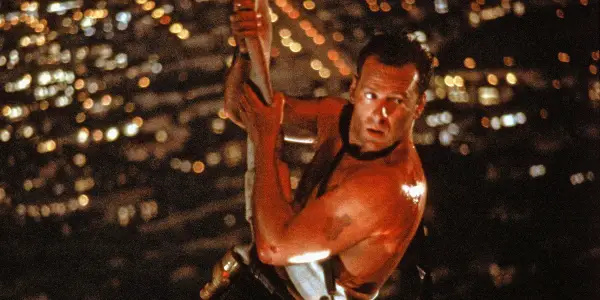
One of the most divisive holiday classics, the argument on whether John McTiernan‘s Die Hard is a Christmas movie, finds its way to the forefront every year. Is it or isn’t it? For myself, the truth is indisputable. Die Hard is a Christmas film – no, a Christmas classic. Many will continue to argue the opposite. My best friend chose the latter, holding solid to her belief that Die Hard is an action film that just happens to occur during Christmas. One drinking game later, the participant was required to drink each time Christmas was referenced both visually and audibly, her stance has since changed. John McClane is the holiday action hero of the season.
More than just a disputed holiday film
Die Hard is not a film that just occurs during the holiday season, but rather because of it. We can argue that it occurs Christmas Eve night, the film’s score encompasses holiday tunes, with Hans Gruber (Alan Rickman) even humming one himself – but if it had not been for Christmas, John McClane (Bruce Willis) would have never been in Los Angeles and Hans Gruber would never have inspired the meme “It’s not Christmas until Hans Gruber falls from Nakatomi plaza.” For six months, John McClane had refused to fly across the country to see his wife and kids – never mind move with them when the opportunity for Holly’s career came to fruition. This would have been a very different outcome and a very different story if John McClane had not made that flight to see his wife and children for Christmas.
source: 20th Century Fox
Yet, while this action film comes to fruition during the holiday season, this argument of whether the film is a Christmas movie at times overshadows the success of the film itself. Each time I watch Die Hard, I find myself noticing new and small details and sharing various suggestions of cinematic delight with others. A lot of the brutality McClane experiences as he dodges and engages Hans and his crew becomes clear as he is poorly dressed and ill-equipped for combat. Much of this comes from the film’s opening moments, a fellow passenger on the plane giving unsolicited advice to McClane about making fists with his toes in the carpet once he gets to where he is going. While McClane discovers the stranger to be correct, his moment of grounding is ripped apart as he flees the initial take over by Hans and his crew.
Much of the film works like this, small nuanced details working cohesively to craft a satisfying action tale that goes beyond the explosions, gunfire and bloodied mess that will become John McClane by film’s end. And while this nuanced detailing elevates the film, so too does its humor.
Die Hard is one of the most quotable films. “Welcome to the party, pal,” “Now I have a machine gun, Ho-Ho-Ho,” “Yippee-kay-yay mother fucker,” “Come out to the coast, we’ll get together, have a few laughs,” and “It’s Christmas Theo! It’s the time of miracles” are just some of the quotes you will undoubtedly find yourself saying both in reference to the film and during. And it is not just what is being said, but the situations they are executed within and by whom. Oftentimes, the humor both contrasts and highlights the events we are watching unfurl before us, the intensity onscreen giving a deeper level of enjoyment and complexity.
source: 20th Century Fox
Yet, it is also who delivers them. Ellis’ “Hans, Booby” stands out within the coked-out arrogance of his character, the delivery keeping the impending death of Ellis (Hart Bochner) a bit more lighthearted yet intense. Sergeant Al Powell’s (Reginald VelJohnson) “No, but it’s gonna need a paint job and a shit load of screen doors” following the explosion within Nakatomi again eases the tension, while further developing the character of Powell and growing the camaraderie between himself and McClane. And while the short, yet effective quips from Agent Johnson (Grand L. Bush) and Special Agent Johnson (Robert Davi) keep the energy flowing, much of the film’s execution of dialogue rests squarely on the shoulders of Bruce Willis and Alan Rickman.
source: 20th Century Fox
Each brings a light and quippy nature to their delivery, while also delivering contrasted sophistication and grit. They are the heart of the film, and their quotability speaks to the talent behind each line audiences continue to recount 35 years later. You as an audience can feel the fun each actor had making this film, while also sensing the dedication. While Die Hard was the first movie role for Alan Rickman, it was also the first action film for Bruce Willis – who up until its release was seen as nothing more than a comedic actor. Each excels beyond exceptions, nestling themselves in the annals of both cinematic history and indisputable holiday classics.
Conclusion
Die Hard is by far one of my favorite holiday films. It has everything, each element of action, romance, humor and storytelling culminating into the perfect viewing experience each and every holiday season. And while the debate will continue to rage on whether this is a Christmas film, for this writer, it always was, always has and always will be.
Does content like this matter to you?
Become a Member and support film journalism. Unlock access to all of Film Inquiry`s great articles. Join a community of like-minded readers who are passionate about cinema – get access to our private members Network, give back to independent filmmakers, and more.
